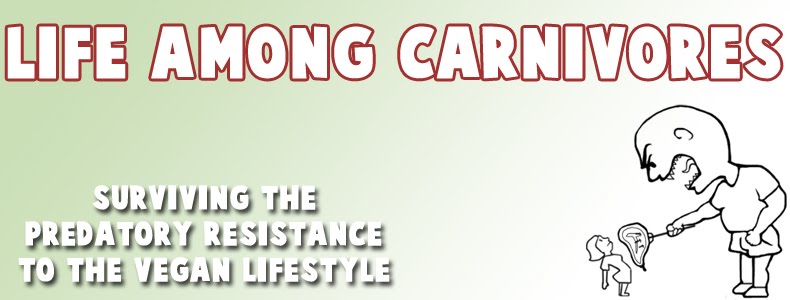This one will almost always be coupled with the line, "But you NEED meat to survive and be healthy!" Obviously the amount of us that have lived and are currently living long and healthy lives without consuming animals isn't evidence enough to the contrary. Nope, we're just falling over dead in the streets all the time or clogging up the hospitals because we refuse to consume animals.
And it's not like most people (whether they're vegan/vegetarian, rabid carnivores or anything between) are already perpetually deficient in one or more essential nutrients anyway.
Oh, wait... most people (veg or not) actually are.
In fact, most people who take multivitamins or other supplements are not vegan. So why are their diets not scrutinized in the same way? People will often tell me, "Well, if you can't get it naturally in your diet, it means your diet is not natural and taking vitamins and supplements is CHEATING!" These same people would also probably be shocked at the results of their own blood test. Studies show that 96% of Americans are fiber deficient, 30% are vitamin C deficient, 56% are magnesium deficient, 98% are potassium deficient, 70% are calcium deficient, 40% are B12 deficient... and the list goes on. If you want to talk about someone not having a "natural" diet or needing to "cheat", it would be best to examine yourself first.
Nutrient deficiency has been a problem for a very long time among every population on the planet. It's why most of our table salt is now "iodized"; at the turn of the last century, the Swiss began iodizing their salt to help prevent mental retardation, thyroid conditions and goiters and it was considered the first "functional food" to include such a supplement. Soon after, most salt bought in Western countries was iodized. Now most foods, especially cereals, juices, milks and foods geared toward children, are fortified with some sort of nutrients, the most common being calcium, iron, zinc, potassium, fiber, vitamins D, A, C, E and B complex.
I think the reason most people believe this myth of vegans being more nutrient deficient than non-vegans is because they tend to equate vegans/vegetarians with "missing something" or "limiting yourself" (which those who've tried a veg diet will know is simply not the case; nori and tempeh and hummus, oh my!). Another reason is that there are plenty of people who will view veganism as just another "crash diet" and go about it in all the wrong ways, essentially giving us a bad name by destroying themselves with their own naïveté. Unfortunately a lot of those people also tend to suffer from the mental disorder of anorexia, of which the image of the tired, sickly, malnourished body some people are quick to equate with veganism.
Yes, vegans do tend to be deficient in some nutrients , most notably B12, but that doesn't mean non-vegans aren't also deficient in the same nutrients. In fact, even though we might be more deficient in some nutrients compared to omnivores, we actually are less deficient, meaning we get more of, other nutrients such as folates and antioxidants than omnivores (who tend to struggle more with these). Either way, vegan or not, everyone can benefit from supplements and fortified foods.
There is also evidence that people who exclude animal products from their diets tend to live longer, be less susceptible to dementia in old age and have lower rates of heart disease and cancer than those on an omnivorous diet. So who's really got the more unhealthy diet here? I think I'll stick with the one that's 60% less likely to give me colon cancer, thanks.

No comments:
Post a Comment